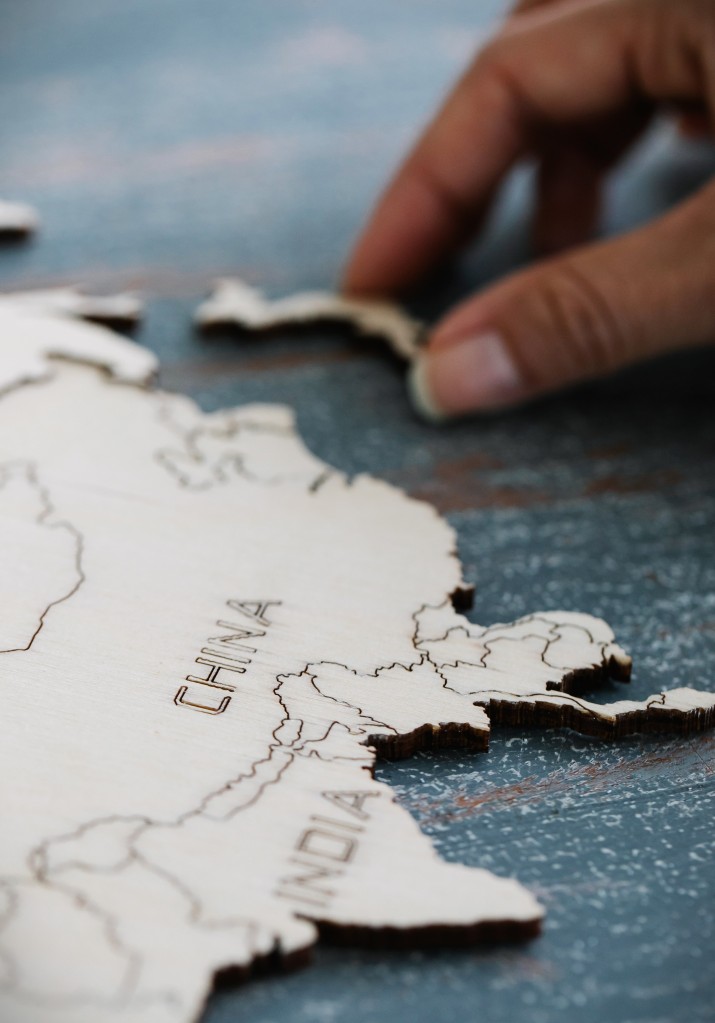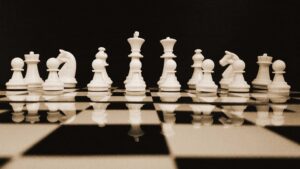
April 17, 2023: The early-stage discovery of lithium deposits in Jammu and Kashmir has sparked excitement in India over the prospect of the high-in-demand mineral potentially turning the country into a major player in the global market and weaning itself off hefty imports.
The one country that India needs to focus on countering with grit and tact is its belligerent neighbour, China. As the world is quickly transitioning from fossil fuels to electrification and advanced batteries, China is already ahead in the geopolitical race to dominate the international lithium trade.
Most cars in the immediate future and all vehicles in the distant future are anticipated to be operated entirely on batteries – for which lithium is an indispensable ingredient – and so, China will keep a hawk eye on the preliminary discovery of 5.9 million tonnes of the rare mineral in the Salal-Haimana area of Jammu and Kashmir’s Reasi district.
In fact, the rare and precious metal is not just necessary for batteries to power EVs (electric vehicles). Its demand is steadily going up as an integral component of smartphones, advanced computers, and airplanes, making it a vital energy resource for ambitious governments and corporate empires.
Given Beijing’s track record of seeking to dominate New Delhi both militarily and in terms of trade, India would look to use the hotly debated lithium findings in J&K as a bargaining chip to counter China.
Despite pairing up in recent times in a global effort to de-dollarise international trade and weaken the American currency’s clout, India and China have historically never been on the best of terms on many other fronts.
The two nations fought a bitter war in 1962, and engaged in multiple military skirmishes over their lengthy border. Beijing has repeatedly torpedoed New Delhi’s ambitions at various international forums and often pitchforked Pakistan as an anti-India ally.
India-China trade
Economically, China has literally flooded Indian markets with tonnes of products, forcing multiple domestic industries to go bust. As Empire Diaries recently pointed out, the incessant dumping of Chinese goods has left India on the wrong side of a massive Rs 8.23 trillion ($101.02 billion) bilateral trade deficit.
Although the lithium discovery in Jammu and Kashmir is only in the ‘inferred’ stage as of now – meaning it’s a long shot from the extraction stage – it still promises a whole new conflict between the world’s two most populous nations.
India buys lithium from…
As of now, India is a lithium and lithium-ion battery importing country, relying heavily on China for its supplies. Between 2018-19 and 2020-21, India spent over Rs 26,700 crore on these imports, according to commerce department data presented in the Rajya Sabha last year. The bulk of these imports were from mainland China, Hong Kong, Indonesia and Vietnam.
In 2018-19, 2019-20, and 2020-21, China’s share in India’s overall import of lithium batteries was 19.8%, 20.7%, and 32%, respectively. China’s real monopoly lies in exporting lithium-ion batteries to India. In 2018-19, China accounted for 81% of India’s imports. Though slightly down, China’s share in 2019-20 and 2020-21 remained at 68.2% and 72.7%, respectively.
The J&K discovery can potentially turn the script upside down, since it could make India the third highest repository of lithium after Bolivia (21 million tonnes) and Chile (8 million tonnes), and surpassing Australia (2.7 million tonnes), Argentina (2 million tonnes) and, most significantly, China (1 million tonne).
Lithium and India’s future
Resource and energy industry experts feel the discovery would vastly reduce India’s dependence on China, and could turn it from a net importer of lithium and lithium-ion batteries to a self-dependent one.
“There are a few stages of assessment before we can identify the proven reserve of lithium in the Salal-Haimana deposit. If this ends up being substantial, it can help India reduce its import dependence on lithium in the future and help the stationary battery system and EV battery industries,” said Deepak Sriram Krishnan, associate director, World Resources Institute, India.
Varun Goenka, CEO and co-founder of Chargeup, a Delhi-based battery-swapping platform, echoed the same opinion, saying the discovery would help reduce India’s dependence on China — “a major concern for many in the current political climate.”
This talk certainly won’t be music to China’s ears. It risks not only losing a huge lithium market, but also faces the prospect of being upstaged by its geopolitical rival in an escalating energy war.
It’s important to also take note of the fact that the tentative discovery of lithium has taken place in Reasi district, which is in a traditionally volatile part of Jammu and Kashmir, and is a little over 415km from Aksai Chin – a disputed territory claimed by India, but pawed by China.
China’s lithium footprint
China is betting big on lithium not only to power its current burgeoning fleet and future demand for EVs, but also as a means of furthering its global commercial interests. It has emerged as the runaway leader in the lithium trade, while it also holds the pole position in producing electric cars.
In a world of ever-changing energy requirements, China had the first-mover advantage when it came to lithium because it started playing this game long before the other players joined in. When most other nations were transitioning from fossil fuels to green energy, China had already started making the right moves on the chessboard of lithium geopolitics.
It’s a paradox that Beijing made its hawkish and predatory capitalistic manoeuvres to control the lithium story under the watchful eyes of the socialist-sounding Communist Party of China.
With the World Economic Forum projecting that lithium demand would exceed 3 million metric tonnes by 2030 from 540,000 metric tons produced in 2021, one can only understand why China sought to swiftly secure access to lithium resources around the world much before its contenders swung into action.
American think tank CSIS (Centre for Strategic and International Studies) has highlighted that China spent $16 billion between 2018 and 2020 on mining activities on foreign soil to look for lithium. It pumped in money in South America’s “lithium triangle”, comprising Argentina, Bolivia and Chile, where most of the world’s deposits of the vital metal are found.
Giving former colonisers such as the US and European powers a taste of their own medicine, China has outmuscled them and purchased vast lithium mines in Africa, not only to extract and produce the mineral, but it also constructed refineries at home to process the output.
In fact, Beijing carried out its flagship ‘Mission Lithium’ in South America and Africa when awareness, demand, and price of the precious metal was still comparatively low. According to the International Energy Agency, the price of the metal, often called ‘white gold’ for its immense industrial value, shot up in May 2022 by seven times from what it was at the start of 2021. https://www.iea.org/reports/global-ev-outlook-2022/executive-summary
As a result of its timely initiatives, at the end of 2020, China had only around 7.9% of the world’s lithium reserves, but still held sway over an estimated 60% of the global capacity for processing and refining.
Lithium: India’s task cut out
Coming back to India’s role in the lithium affair, apart from the uncertainty over its ‘inferred’ reserves reaching the stage of actual exploration, the country also lacks the technological and infrastructural knowledge to extract, purify, and process the metal.
Ideally, India should be devising ways to tackle the situation in a self-reliant way. Instead, New Delhi has taken some preliminary steps to tie up with foreign lithium playmakers as part of its efforts to look beyond Beijing.
Khanij Bidesh India Ltd., also called KABIL, which is a joint venture of three CPSEs (Central Public Sector Enterprises) under the mining ministry, has signed a non-binding MoU with three state-owned organisations from Argentina for sharing information about prospective mineral acreages of lithium.
Also, the governments of India and Australia have inked a deal to cooperate in the field of mining and processing of “critical and strategic minerals” such as lithium.
More recently, India and Australia identified five target projects, including two related to lithium, for undertaking detailed due diligence. Investments under the partnership will seek to build new supply chains by utilising critical minerals processed in Australia.
The joint move is expected to help India’s plans to lower carbon emissions from its electricity network and boost EV production. In fact, India’s minister for coal and mines, Pralhad Joshi, toured the Kwinana lithium hydroxide refinery in Western Australia last year.
Lithium and foreign hawks
For sure, India needs to seal more such tactical pacts with countries that are also seeking to counter Chinese domination. In a way, it’s like benefiting from the ages-old realpolitik theory of the enemy’s enemy is a friend. But in a world of proxy wars and deceptive geopolitics, India needs to watch its back and ensure that opportunistic anti-Chinese foreign players don’t end up hijacking its cause, turning New Delhi into a western proxy against Beijing.
To sum up, India’s task is cut out in this upcoming lithium war with China. One, it needs to be able to successfully access and extract its new-found lithium in Jammu and Kashmir. And two, it needs to walk the fine line by partnering with China’s foes, and yet steer clear of their bullying tendencies. Once these two eventualities fall into place, New Delhi will be in a position to turn the tables on its unpredictable neighbour.
There’s an optimistic lesson for India in Bob Dylan’s prophetic classic, The Times They Are A-Changin’: “‘The line it is drawn, the curse it is cast. The slow one now will later be fast. As the present now will later be past. The new order is rapidly fadin’. And the first one now will later be last. For the times, they are a-changin’.”
REPUBLISHING TERMS:
All rights to this content are reserved. If you want to republish this content in any form, in part or in full, please contact us at writetoempirediaries@gmail.com.









